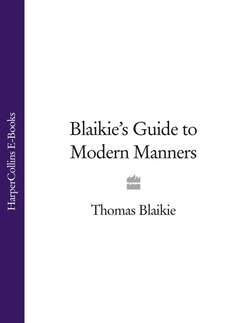Читать книгу Blaikie’s Guide to Modern Manners - Thomas Blaikie - Страница 14
Drunkenness
ОглавлениеWe hear a lot about binge drinking and most of it is true. Pleasant cathedral cities, such as St Albans and Winchester, turn into hellholes on Friday and Saturday nights. Even Mrs Gibbs, eighty-five, is fully clued up. ‘I have a friend who lives next to a camping barn in Devon. Once it was occupied by some lawyers – all men – who were so drunk they threw all the furniture and things like the microwave into the river. Another time it was some young people who’d just finished their A levels. They ended up on the roof hurling abuse.’
There is much debate about whether all this isn’t just traditional British behaviour and nothing to make a fuss about. Traditional or not, it isn’t very nice. In its present form, drunkenness seems to be no respecter of class. Matt complains that his train home to Peterborough is frequently stopped for drunks to be expelled: ‘You see some City type in a suit out of his mind on the platform.’ Aggression and violence also are new features. The pre-war days of Bertie Wooster and Gussie Finknottle getting rather squiffy and stealing policemen’s helmets have gone for good. Even Zoe, many of whose friends are up for the Friday-night blow-out, has noticed it. ‘Last New Year’s Eve I had to walk home most of the way to Balham from the West End. The only people I saw were blind drunk. Every single one of them was either weeping hysterically, shouting really aggressively at the bouncers outside a pub or club, or they were couples having horrible rows.’
Or the severely inebriated person ends up alone – like Euan Blair, lying abandoned by his mates in the gutter. But encountering the Prime Minister across the table in the police station later is not usually part of the experience.
For the sake of others, don’t get blind drunk.
